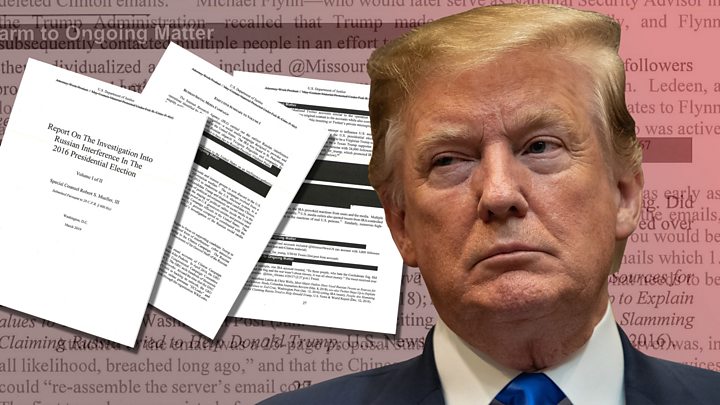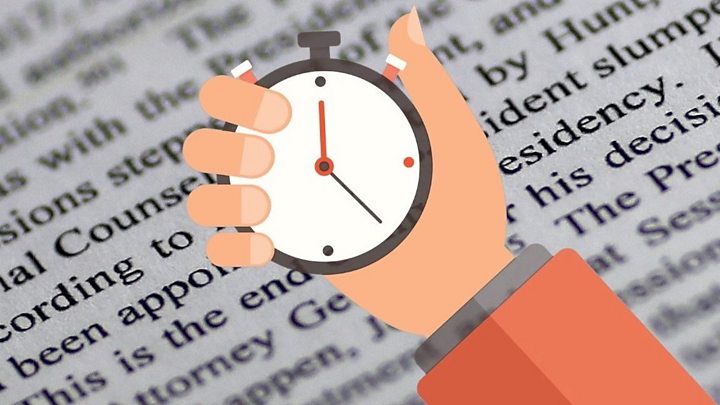Five looming fights between Congress and Trump
The US attorney general spent five acrimonious hours in front of a congressional committee explaining his handling of the Mueller report. The intensity of some of the exchanges suggests multiple legal and battles lie ahead between the Democrats in Congress and President Donald Trump.
A day after Attorney General William Barr traded blows with senators, the stakes ramped up considerably as he refused to testify to another committee and the Democratic leadership accused him of lying under oath.
Here’s a look at five areas where the fighting could be the most heated – and where they could be headed.
Waiting for Mueller
Mr Barr’s Senate testimony on Wednesday may have prompted as many questions as it answered, raising to a fevered pitch Democratic calls to hear from Robert Mueller himself.
They want to ask him why he failed to reach a conclusion on whether the president obstructed justice, and what he thinks about the attorney general’s handling of his report.
They’ll also want to question him about the contacts between the Trump campaign team and Russians – and how close they may have come to being a criminal conspiracy.
Although Republican Senate Judiciary Chair Lindsey Graham says he has no interest in calling Mr Mueller before his committee – insisting that the matter is closed – House Democrats have other ideas.
The chairman of the House Judiciary Committee, Jerrold Nadler, said negotiations are continuing over finding a date, perhaps in May, when the special counsel can testify before his committee.
Mr Barr has said he has no objection to Mr Mueller making such an appearance and Trump adviser Kellyanne Conway also said that Mr Mueller – who is still, technically, a Justice Department employee – can testify.
But increasing conflict between the White House and Congress could change this calculus.
Outlook: Mueller spent most of his time as special counsel shrouded in secrecy and silence. It seems unlikely, however, that he will be able to quietly disappear from the national stage.
Punishing Bill Barr
In a press conference on Thursday morning, Democratic Speaker of the House Nancy Pelosi straight-up accused William Barr of committing a crime.
She was specifically referring to the attorney general’s claims, during congressional testimony in early April, that he was unaware of reports of dissatisfaction with his handling of the Mueller report expressed by members of the special counsel’s office.
Democrats now believe this was a lie – based on a recent revealed letter from Mr Mueller to Mr Barr complaining that the attorney general’s four-page summary did not “fully capture the context, nature and substance” of his work.
Mr Barr countered that his communications were with Mr Muller himself, not his team, and the dissatisfaction had to do with the media coverage of his letter, not how he relayed Mr Mueller’s findings.
Needless to say, Democrats aren’t buying it.
Then there are other reasons Democrats are angry at Mr Barr – such as his refusal to testify before the House Judiciary Committee and his decision to ignore congressional document subpoenas.
What are Democrats going to do about it? Mrs Pelosi only made vague references to a “process”, but they have several options if they want to punish the attorney general.
They could make a criminal referral for lying to Congress, which would be forwarded to a US attorney in Mr Barr’s Justice Department. They could hold Mr Barr in contempt of Congress, which would have to be enforced by US attorneys in the Trump administration.
The House of Representatives could also vote to formally censure the attorney general, putting a black mark on his record but not much more.
Finally, they could try to impeach the attorney general and have him removed from office. The process would be similar to that for removing a US president – a majority vote in the House of Representatives followed by a trial in the US Senate requiring a two-thirds vote to “convict”.
Only one White House cabinet official has ever been impeached – Ulysses S Grant’s Secretary of War William Belknap in 1876 – and he was ultimately acquitted of corruption charges by the Senate.
Outlook: Legal proceedings seem unlikely. Censorship appears pointless. Impeachment would be an uphill fight, but it could also serve as proxy battle for the impeaching Mr Trump himself, venting frustration for Democrats who are itching for a fight but wary of taking on the president directly.
The McGahn subpoena
While Mr Mueller’s appearance before the US Congress would be a blockbuster occasion, he’s not the only individual Democrats want to question in open testimony. The special counsel’s report detailed how former White House Counsel Don McGahn felt the president pressured him to fire Mr Mueller and, later, write a memo saying that Mr Trump issued no such directive.
When Mr Barr was questioned about the matter by Senate Democrats, he said the president only suggested Mr Mueller be “replaced” because of a perceived conflict of interest – and then instructed Mr McGahn to write a memo to correct inaccurate media reports.
Democrats, needless to say, aren’t buying this, viewing the episode as one of the most obvious instances of possible obstruction of justice. Mr Nadler has issued a subpoena calling on Mr McGahn to testify before his committee on 21 May so his committee can get the former Trump aide’s account directly.
That’s not the end of the matter, of course. Mr Trump has said he plans to fight all the congressional subpoenas his administration is receiving, with Mr McGahn’s probably high on the list.
The White House could claim “executive privilege”, a legal principle that protects the confidentiality of advice a president receives from his aides. Although that privilege was waived when Mr McGahn spoke with Mr Mueller’s office, a recently revealed letter from White House lawyer Emmet Flood to Mr Barr indicates the president intends to preserve those protections going forward.
If both sides dig in, Mr McGahn’s freedom to talk to Congress could end up a matter for the courts to decide.
Outlook: Executive privilege is a controversial legal principle, but there are plenty of judges – and Supreme Court justices – who could be eager to see these presidential protections strengthened. Mr McGahn would be a blockbuster witness – but the Mueller report may end up being his only public account.
An unredacted report
While most of the Mueller report was made public in mid-April, there are still roughly 36 pages that the Justice Department has redacted – because of sensitive intelligence data, grand jury information, material relevant to ongoing investigations or matters concerning “peripheral third parties”.
Democrats in Congress want to see the entire report and have issued a subpoena – again courtesy of House Judiciary Chair Nadler – to force the Justice Department to hand it over.
The White House has said the report was produced by the special counsel for the attorney general, and Congress has no right to see it in its entirety. There’s an unstated concern that if the report receives wider distribution, its sensitive contests will leak to the public.
Attorney General Barr said in his Senate testimony, however, that there were no significant areas of disagreement between Mr Mueller and himself over what to redact. There’s no guarantee that the blacked-out portions of the report contain any new, explosive information.
Still, it could very well end up another battle between two branches of government, the executive and legislative, that will have to be decided by the third, the judiciary.
Outlook: This could end up being a fierce battle over a hill that doesn’t matter in the larger war.
Trump’s tax returns and other documents
There are two separate legal battles brewing over congressional requests for Donald Trump’s business records and – that holy grail for many on the left – his tax returns.
A month ago, Richard Neal, the Democrat in charge of the House Ways and Means Committee, formally requested that the Internal Revenue Service (IRS) provide him with copies of the president’s tax returns for six years, citing a seldom-used 1924 law as authority.
So far Treasury Secretary Steve Mnuchin, whose department oversees the IRS, has only said he’s reviewing the matter.
The president and his lawyers, on the other hand, have called the request improper and insisted that the IRS not comply.
“The Democrats are demanding that the IRS turn over the documents, and that is not going to happen and they know it,” acting White House Chief of Staff Mick Mulvaney said a few days after the first committee request was filed.
If the Treasury Department continues to drag its feet, the Democrats could start court proceedings that eventually determine the constitutionality of that old federal law and the legality of the Democratic action.
Meanwhile, Mr Trump’s personal lawyers have filed a flurry of lawsuits to prevent an accounting firm and two banks used by Mr Trump’s businesses – Deutsche Bank and Capital One – from complying with requests by several Democratic-controlled House committees for Trump organisation financial records.
Courts have previously given Congress broad subpoena powers as part of their legislative and investigatory responsibilities, but Mr Trump’s lawyers are painting the move as a partisan fishing expedition that intrudes on the privacy of the president and his family.
Democrats counter that a thorough inspection of Trump businesses is the only way to ensure that he doesn’t have financial involvements that are illegal or make him susceptible to foreign influence.
Outlook: This appears set for another long, drawn-out legal battle. Democrats could find a way to circumvent the federal government, however, if New York state – which possesses the president’s state tax returns and oversees many big financial institutions – hands over what they have to Congress.
Follow Anthony on Twitter
Source: Read Full Article




